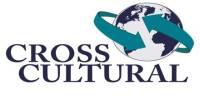Case 1.2
International Marketing: Unilever vs. Nestle
Unilever:
Unilever was established in 1948 and produces house hold products like; detergents, toiletries, cosmetics, and food products. Unilever is a large corporation that has over 500 firms worldwide. Their products are sold in more than 170 countries. Unilever originated in Europe and then expanded to the United States, starting with two U.S. factories. They can be located in parts of Asia, Africa, North America, the Middle East, Western Europe, and South America. Unilever has a very impressive portfolio that includes eleven brands that annually gain revenue of more than one billion dollars each.
Unilever is aiming for global processes and alignment of their human resource activities. “Unilever is working with Accenture to identify supply opportunities within the marketplace and will look to develop longer term relationships with a rationalized base of preferred suppliers. We seek to do business with those who can supply goods and services in a reliable and cost effective manner.” (2010) there is even a way to apply to be one of Unilever’s suppliers that will provide human resource goods and services. Unilever gained a lot of their success because of the ability to adapt to new markets and technology.
In order to help with the increase in revenue, Unilever changed companies focus to places with higher potential for growth. Concentration on new emerging markets like China, who had a high young population with increasing incomes, caused their developing world sales to increase by substantial amounts. Even while the company was facing struggles such as the Great Depression of the 1930’s, they were concentrating on diversification and expansion of their food markets. Unilever put great efforts into research and development. Unilever’s marketing efforts only varied slightly from the 1950’s until the 1980’s. In this time frame Unilever focused on technology, new products, new global markets, and keeping up with the world economies expansion. By the time the 1980’s arrived Unilever was one of the biggest global corporations which allowed them to focus their marketing efforts on their existing portfolio. By the 1990’s Unilever chose to keep its focus on its portfolio and even eliminated some of their brands so they could keep a strong focus on the top global sales products. In the 2000’s the company implemented a new five year strategic plan that focuses on the needs of consumers and a better future.
Nestle is one of the largest consumer packaged goods company in the world that focuses on increasing the nutritional value of the food that is consumed while increasing the taste. The company is classified as a nutrition, health, and wellness company. Nestle was a Swiss company that was founded in 1866. Just like Unilever, they devote a lot of time to research in development. Nestle invest around 1.5 billion in research and development every year. Nestle markets nearly ten thousand different products to 130 different countries across the globe.
Nestle has always been about nutrition, so their global marketing over the years has been based off of demographics that show the changes in living standards and life styles. In the long history of the company, the times have changed. People live longer, and the global population has increased. This has had a huge influence on the way the Nestle runs their business and what products have been the main marketing focal points.
Nestle and Unilever both focus on health and wellness, but instead of focusing on the actual needs of the consumers like Unilever, Nestle focuses on their corporate wellness unit to bring good food, and good life to all of the consumers. Other words, they devote more time and effort into ingredients then the actual consumer.
The corporate wellness group is a global network that is globally placed to help promote the value of nutrition. Their strategy is to make sure to provide better tasting products that are better for everyone.
The two corporations also differ in marketing because Unilever is sticking to its profile and even eliminated products, but Nestle is creating and enhancing hundreds of Nestle products. Nestles’ packaging plays a big role in their marketing. Each package has what is called the “Nestle Nutritional Compass”, to show consumers what they will benefit if they purchase the product. Nestles’ philosophy is that nutritional information is not enough. The compass has three elements: Good to Know; which gives factual information on nutritional contents. Good to remember; which gives tips for healthy lifestyles, cooking, and diet. Good to talk; which invites the consumer to call the Nestle consumer service team or log on to the Nestle website. (2006)
Just like Unilever, Nestles marketing strategy is looking towards the future of their products. They are working on products that will be geared towards gestational issues, Alzheimer’s, diabetes, obesity, and other items that will contribute to the health and wellness of the consumers.
Case 2-5
Question: Discuss the practical and legal consequences of following each approach.
Answer: The practical and legal consequences of
Pragmatic approach: A pragmatic approach to business ethics is argued for in this volume, which demonstrates the usefulness of the approach by applying it to a variety of issues. These issues are broad and far-reaching and include the relations between rational and moral//ethical decision-making, the limits of loyalty to employers, the impact of trust on business and the role of commercial public opinion polling during elections. The author also covers advertising, tobacco promotion, manufacture and marketing of armaments, concentration and taxation of wealth, and the North American Free Trade Agreement.
Complacent approach: Any consultant will agree that the best companies make the best clients. This isn’t just because mismanaged companies are unlikely to have the required breadth and depth of high-quality management. A deeper reason is that excellent companies are prepared to confront the deficiencies in good time. Lesser, smugger managements wait until crisis – manufactured by their mismanagement – forces their hands. Businesses are currently able to find people to produce today’s goods. That points to a rough balance in the labor market. In contrast, if businesses (new or expanding) are to create better paid jobs, using higher skills, this can only happen if more people are adequately prepared for new jobs that need enhanced skills. The skills deficit will not be avoided if Government and business continue with their current complacent approaches.
Responsible approach: Globalization, environmental disasters and social hardship caused by companies have changed society’s expectations vis-à-vis the way businesses operate. The information society has helped to increase transparency with regard to business practices and their consequences for society. Nowadays, well-informed citizens expect companies to take social and environmental concerns into account in addition to achieving good financial results. Increasingly, citizens are willing to withhold their custom and investment if companies do not live up to these expectations. Companies have reacted by developing a ‘total responsibility approach’ to management, combining the drive for good financial results with the goal to live up to their social and environmental responsibility vis-à-vis employees and the communities where they are based. In this context, different initiatives have been developed at national and international level in order to promote the concept and it has become clear that there is no ‘one size fits all’ approach.
Ethical approach: Ethical principles provide the foundations for various modern concepts for work, business and organizations, which broaden individual and corporate priorities far beyond traditional business aims of profit and shareholder enrichment. Ethical factors are also a significant influence on institutions and public sector organizations, for whom the traditional priorities of service quality and cost management must now increasingly take account of these same ethical considerations affecting the commercial and corporate world.
Question: What steps can a company take to ensure that management operates in a legal and ethical manner?
Answer: Steps to ensure management operates in a legal and ethical manner are given below.
Build respect, credibility and strategic importance for the HR profession within organizations, the business community, and the communities in which we work.
Assist the organizations we serve in achieving their objectives and goals. To inform and educate current and future practitioners, the organizations we serve, and the general public about principles and practices that help the profession.
ü Positively influence workplace and recruitment practices.
ü Encourage professional decision-making and responsibility.
ü Encourage social responsibility.
ü Measure the effectiveness of HR in contributing to or achieving organizational goals.
ü Comply with the law.
ü Work consistent with the values of the profession.
ü Strive to achieve the highest levels of service, performance and social responsibility.
ü Advocate for the appropriate use and appreciation of human beings as employees.
ü Advocate openly and within the established forums for debate in order to influence decision-making and results.
ü Be ethical; act ethically in every profession interaction.
ü Question pending individual and group actions when necessary to ensure that decisions are ethical and are implemented in an ethical manner.
ü Seek expert guidance if ever in doubt about the ethical propriety of a situation.
ü Through teaching and mentoring, champion the development of others as ethical leaders in the profession and in organizations.
















